Description
30 Seeds Lemon Cucumber is a yellow ball of sunshine! This unique strain of cucumber produces light yellow fruit that look like lemons on the vine! Lemon yellow cucumbers are tender and sweet, excellent sliced in salads and can even be pickled! Also Known As: Garden Lemon, yellow cucumber, Apple cucumber, Budamkaya, Dosakai, Crystal Lemon, Crystal Apple. We ship in 1 business day. Shipped with USPS First Class Mail. Plant Name: Cucumber, Lemon Latin Name: Cucumis sativus Days to Germinate: 3-10 Days to Harvest: 65 Germination Rate: 92% Test Date: 9/21 Growth Habit: Vining USDA Zones: 4-12 Lifespan: Annual Country of Origin: United States Sunlight: Full Sun, Partial Shade GMO: No Pollination: Heirloom, Open-Pollinated Fungicide-Treated Seeds:*: No Seeds Packed For**: 2022 *Fungicide-treated seeds protect the seedlings from diseases until they are up and growing. Do not eat treated seeds. **Seeds are freshly packed for the growing season of the year listed. Seeds are still viable beyond pack date. Store in a cool and dry location such as the refrigerator or basement to best preserve germination rates. Planting Instructions: Soil Preparation: Remove weeds, large rocks, and litter from the planting area. Leave small weeds and dead grass, they will enrich the soil when turned under. Spade the soil 8-12 inches deep and turn each shovel of soil over completely to cover the plant materials with soil. You may add fertilizer or organic matter at this point (see “Fertilizing” below). Make rows of soil beds 4-6 inches high and at least 3 feet apart. This formation of ridges will help with drainage, which is essential for cucumbers. Planting: Since cucumbers cannot survive frost, plant only after all danger of frost has passed and the soil begins to warm. Choose an area with full sunlight, well-drained soil, and away from tree roots. To plant, make 1 inch deep holes spaced 12-14 inches apart in raised beds down the rows, then plant 3-4 cucumber seeds in each hole. Cover seeds with about 1 inch of fine soil and firm the soil with the flat side of a hoe, but do not pack it. By planting several seeds, you are more likely to get a stand. Remove extra plants after seedlings emerge. Cucumber vines can reach 6-8 feet long or more and require lots of space. In large gardens, cucumbers can be spread on the ground. In small gardens, cucumbers can be trained on a fence, trellis, cage, or along a wire attached to a wall. If wire cages are used, plant along the cage or trellis. *Tip: You can plant fast maturing crops such as lettuce and radishes between cucumber hills to save space. These will be harvested before the cucumber vines get too large. Planting Depth: 1 inch Within-Row Spacing: 12-14 inches Between-Row Spacing: 3-5 feet Care During the Season: Watering: Water the plants well about once a week if it does not rain. Weeding: Keep cucumbers plants as weed-free as possible. When plowing or hoeing do not dig deeper than 1 inch to prevent from cutting the feeder rooters which may slow the plant’s growth. Cucumbers produce both male and female flowers. Male flowers will open first then drop off while female flowers will form the cucumber and should not drop off. *Tip: You can use a cotton swab to touch the inside of each male and female flower to pollinate the flowers and help them develop in into fruit. Fertilizing: Cucumbers require plenty of fertilizer, scatter 1 cup of a complete fertilizer for each 10 feet of row. Work into the soil and leave the surface smooth. When vines are 10-12 inches long, you may optionally apply 1/2 cup of fertilizer for each 10 feet of row, or 1 tablespoon per plant. Water the plants after fertilizing. Insecticides: Insecticides may be used to protect plants. Bt-based insecticides and sulfur are organic options. Sulfur also has fungicidal properties and helps in controlling many diseases. Before using a pesticide, read the label and always follow cautions, warnings and directions. Diseases: Diseases can show up as spots on the upper or lower sides of leaves or cucumbers. Check the plants daily and if these spots appear, treat the plant with an approved fungicide. Neem oil, sulfur, and other fungicides may be used. Please always follow label directions. Harvesting: Harvest cucumbers when reach the desired size and are yellow in color. Lemon cucumbers are best picked when they are 2-3 inches in diameter when mature. Try not to wait until cucumbers over-mature or they will have tough skins and seeds. Nutrition Facts: Cucumber Amount per 1/2 cup slices (52 g) Calories 8 % Daily Value* Total Fat 0 g 0% Saturated fat 0 g 0% Polyunsaturated fat 0 g Monounsaturated fat 0 g Cholesterol 0 mg 0% Sodium 1 g 0% Potassium 76mg 2% Total Carbohydrate 7 g 1% Dietary fiber <1 g 1% Protein 0 g 3% Vitamin A 2% Vitamin C 5% Calcium 3% Iron 1% Vitamin D 0% Vitamin B-6 0% Cobalamin 0% Magnesium 2% *Percent Daily Values are based on a 2,000 calorie diet. Your daily values may be higher or lower depending on your calorie needs.

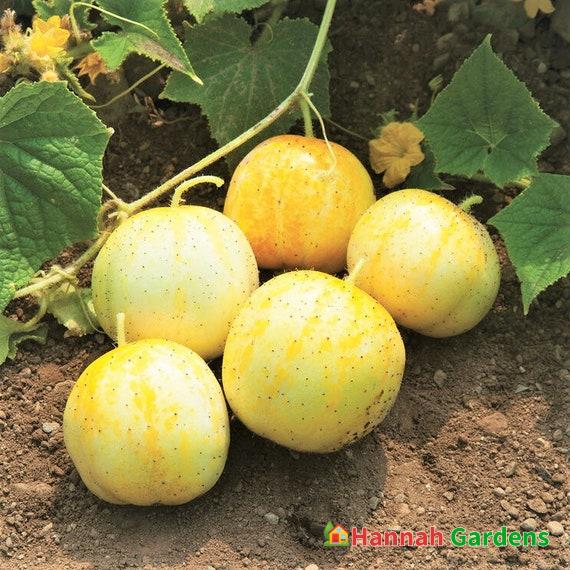
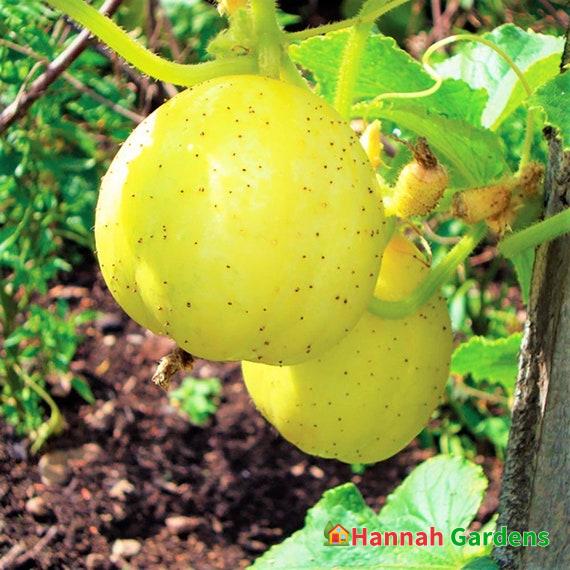
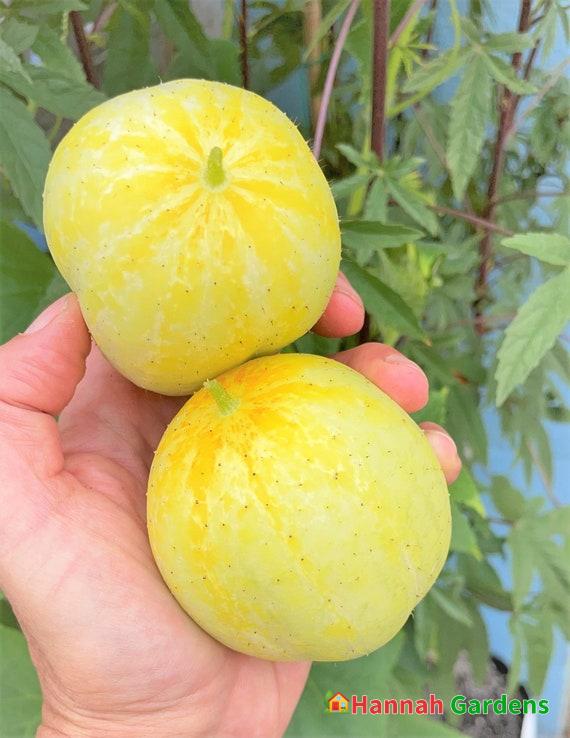
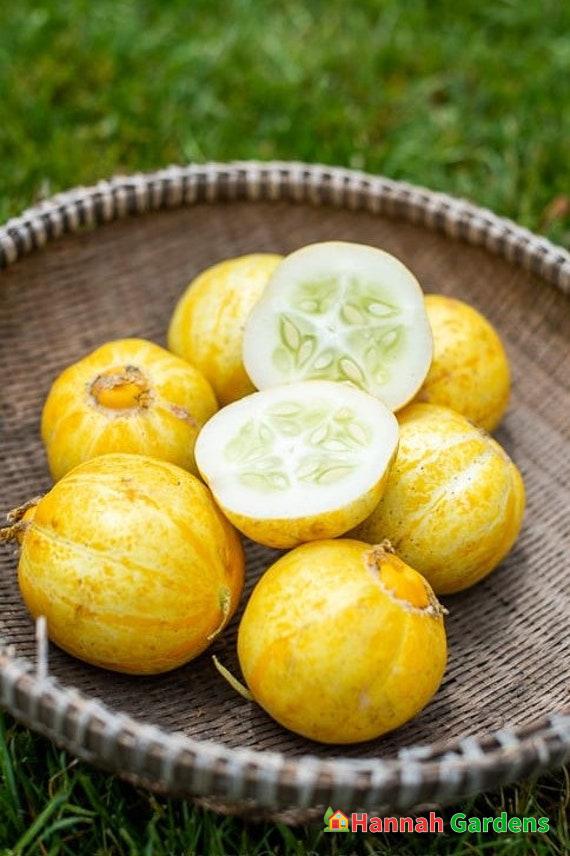
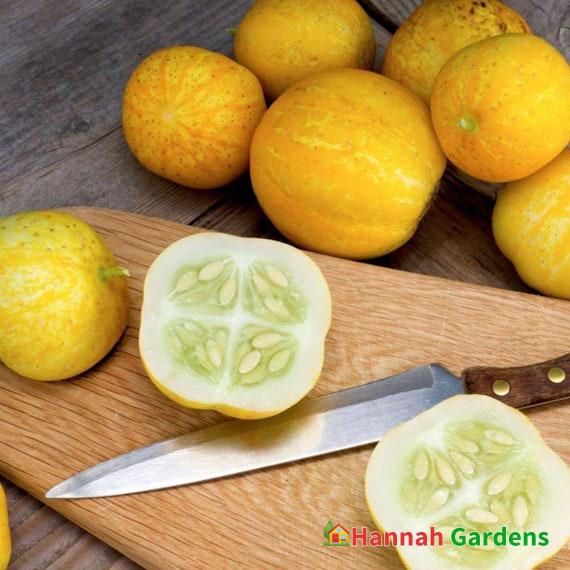
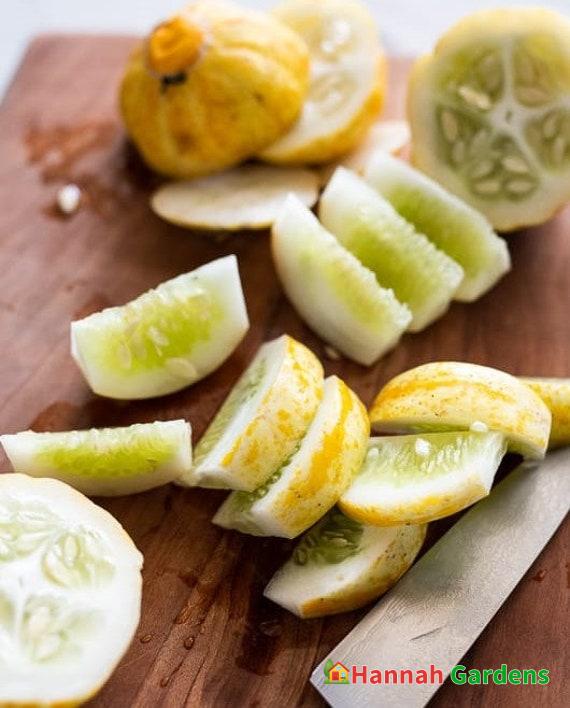
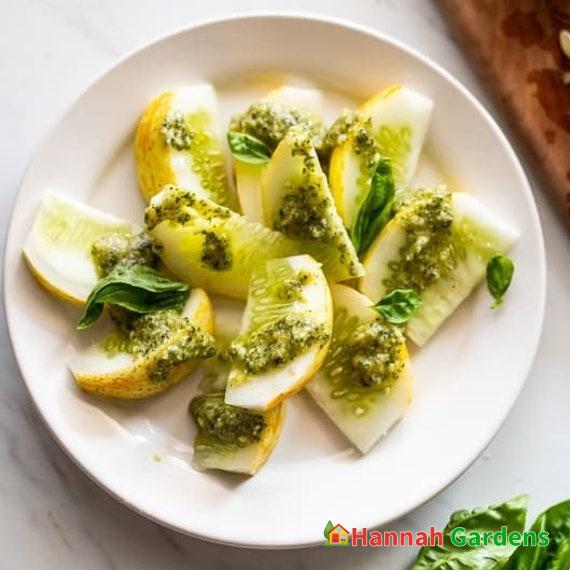
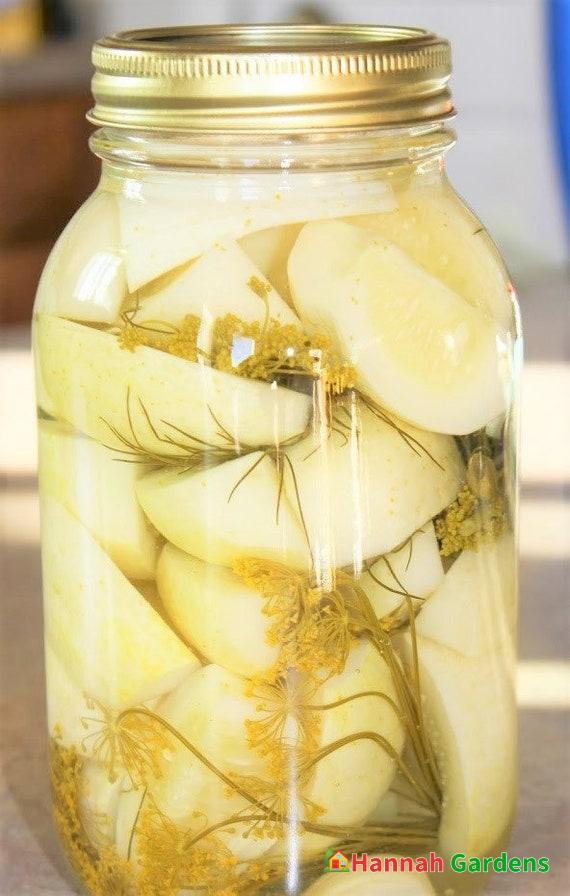
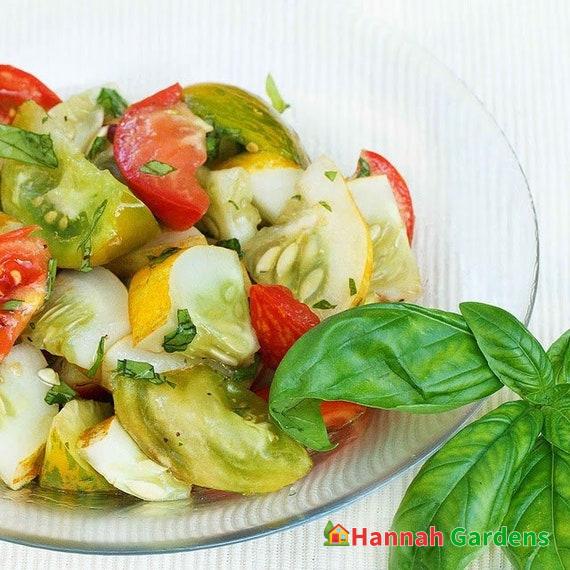
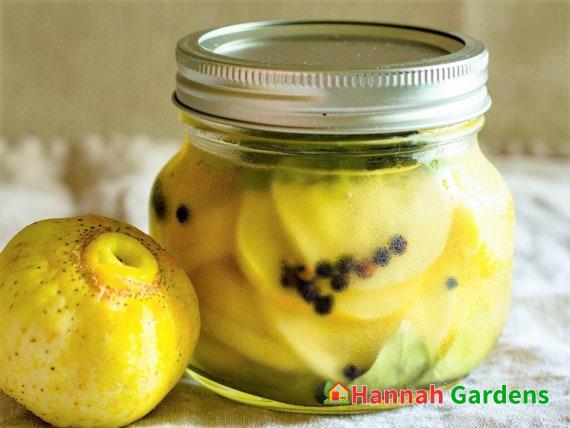
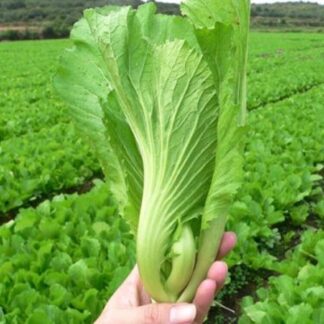
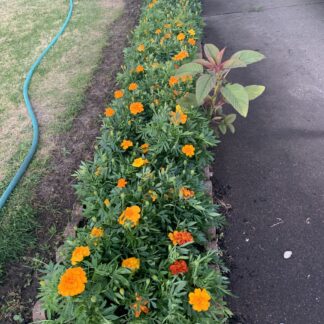
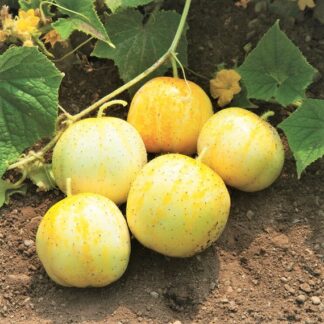
Michaela McPolin –
Shipped quickly! I won’t plant these until next spring but I’m sure they will be great quality like the other seeds I purchased from this shop! Thank you so much!
Update Sept: I ended up going for it & planting a couple of these! They germinated quickly & look great!
Bert –
Growing great the plants are about 2-3 inch tall
Fenn –
I love this seller – one of my favorite nurseries – The product label and instructions are clear! Not only that, all of my seeds I planted sprouted quickly! I am excited and can’t wait to see it grow!
The customer service is wonderful and thank you so much!
Sarah Rogers –
Purchased many seeds from this shop. All arrived well sealed, however I wish the seed packaging was different. I had to repackage what I didn’t use because they were in small plastic bags you tear open. So far they are are sprouting very well and will definitely buy from here again! They also threw in some extra seeds for free which was so kind and live the extra variety. Will definitely order from again!